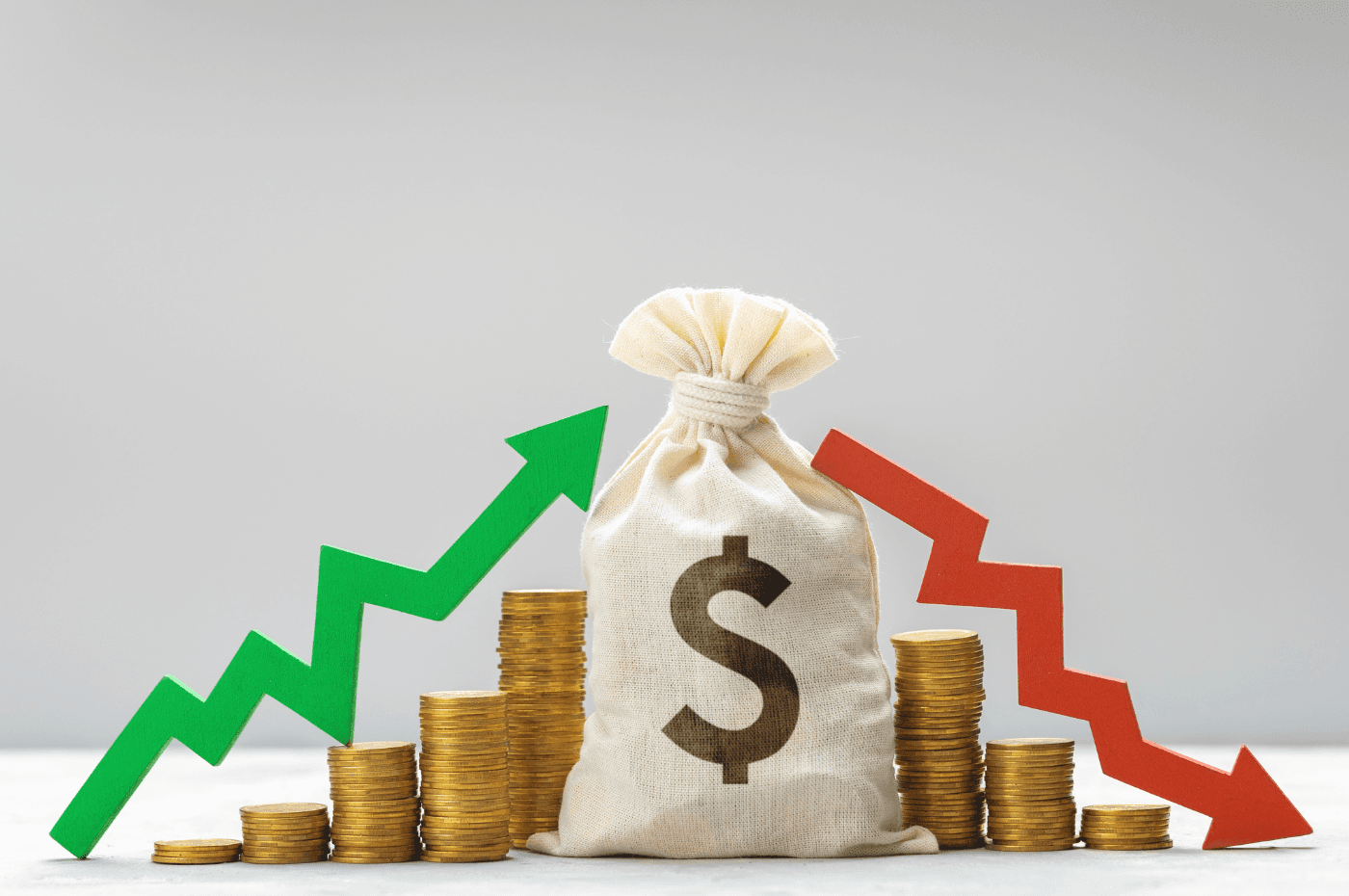Quebec’s real estate market is in constant evolution. It follows cycles influenced by a wide range of factors: interest rates, inflation, consumer confidence, and government policies. These fluctuations, often unpredictable, can create uncertainty for buyers, sellers, and investors alike.
In this context, knowing how to interpret market signals becomes a crucial asset. Understanding market conditions, anticipating shifts, and adjusting your strategy accordingly not only helps reduce risks but also allows you to seize the right opportunities.
This article offers a clear and practical framework to help you better understand real estate cycles in Quebec, adapt to them, and make informed decisions, regardless of the economic climate.
Understanding the causes of real estate market fluctuations
Market variations are never random. They respond to a combination of factors that influence supply and demand dynamics. Understanding the causes of these changes can help you better anticipate developments and fine-tune your approach accordingly.
1. Interest rates
Interest rates have an immediate impact on households’ borrowing power. When rates rise, mortgage costs increase, which tends to cool down demand. Conversely, lower rates make homeownership more accessible and can drive up prices.
2. Supply and demand
In a tight market, characterized by a shortage of available properties, competition intensifies, putting upward pressure on prices. On the other hand, when there is an oversupply of listings, buyers gain negotiating power, often leading to more moderate price growth.
3. Economic context
Employment, inflation, and overall economic growth directly affect consumer confidence. During periods of economic uncertainty, decisions to buy or sell property are often postponed.
4. Public Policies
Government measures, such as tax credits, mortgage restrictions, or fiscal changes, can quickly stimulate or cool the market.
Real estate barometer: how to identify market trends
To make an informed decision, you need to understand the direction in which the market is heading. By reading the right indicators, you can anticipate shifts, seize opportunities, and avoid potential pitfalls. Several key data points can help determine whether the market is growing or slowing down:
-
Sales volume: A steady increase in transactions generally indicates an active and expanding market.
-
Number of active listings: A rapidly growing inventory may signal a slowdown or a shift toward a buyer’s market.
-
Average time on the market: Longer selling periods often reflect a cooling market.
-
Year-over-year median price changes: A sharp increase may point to an overheated market, while stagnation or decline could indicate a market correction
Looking back: average home price trends in Quebec over the last 10 years
Over the past decade, Quebec’s real estate market has seen a significant rise in home prices. Between 2015 and 2019, this growth remained moderate, supported by a balanced market and steady demand. The true turning point came in 2020 with the onset of the pandemic: interest rates were slashed to historic lows to support the economy, significantly boosting homeownership accessibility. The result was a rapid price surge from 2020 to 2022.
Starting in 2023, interest rates were raised in an effort to curb inflation, which contributed to a market slowdown. Purchasing power declined, transaction volumes dropped, and prices stopped climbing, although they remained high compared to previous years.
Adjusting your strategy as a buyer
Market conditions have a major impact on how to approach a home purchase. Whether the market is booming or slowing down, buyers must adapt their strategy to improve their chances and mitigate risks.
When the market is rising
In a hot market, where demand is strong and properties sell quickly, preparation is key. Getting a mortgage pre-approval early on helps you respond quickly and show sellers you’re a serious buyer.
It’s also important to define your priorities and maximum budget in advance to avoid making emotional decisions. In some cases, being flexible, on location, for example, or square footage, can make the difference between closing a deal or missing an opportunity.
When the market slows down
In a calmer market, buyers have more time to think, compare, and negotiate. It’s an ideal time to view multiple properties, discuss terms, and build a purchasing plan that aligns better with long-term goals.
Adjusting your strategy as a seller
Just like buyers, sellers must adapt their approach based on current market conditions. Expectations, timelines, and strategies can vary significantly depending on whether demand is high or more moderate.
In a high-demand market
When the market is active, sellers are generally in a strong position. To maximize interest from the first days on the market, it’s wise to present the property in the best possible light: professional photos, staged spaces, and thorough cleaning can make a big difference.
Setting a competitive price, slightly below market value, can also attract more buyers and create a sense of urgency or scarcity, which may lead to bidding wars. It’s important to be ready to act quickly by responding promptly to showing requests and managing multiple offers simultaneously.
In a slower market
In a cooler market, patience becomes essential. Adjusting the listing price may be necessary to remain competitive, while emphasizing the property’s unique strengths, such as location, recent renovations, or layout potential, can help maintain buyer interest.
Sales may take longer to finalize, but a well-thought-out, realistic strategy increases the likelihood of a successful transaction under favourable terms.
Thinking long-term as an investor
For real estate investors, the key is to build a strategy that can withstand market cycles. It’s not about reacting to short-term fluctuations, but rather anticipating broader trends and securing long-term profitability. Here are a few fundamental practices:
-
Diversify your real estate portfolio: Varying property types and locations helps reduce risk and smooth out the impact of market fluctuations.
-
Maintain financial flexibility: Keeping a reserve fund allows you to handle unexpected expenses, vacancy periods, emergency repairs, rising interest rates, or slower demand.
-
Target stable local markets: Investing in growing areas, such as dynamic suburbs or university towns, increases your chances of long-term appreciation and consistent rental income.
-
Evaluate returns under different scenarios: It’s essential to calculate potential profitability by factoring in variables such as maintenance costs, vacancy rates, and changes in mortgage interest rates.
The importance of surrounding yourself with the right professionals
In a constantly evolving residential real estate market, relying on qualified experts can make all the difference. Their guidance helps avoid costly mistakes and optimize every decision whether you’re buying, selling, or investing.
-
Real estate brokers understand local market dynamics and can advise you on the right time to act, while tailoring your strategy to current conditions in Quebec’s housing market.
-
Mortgage brokers help you navigate interest rate changes, renegotiate your loan terms, and reduce your borrowing costs based on the economic climate.
-
Certified appraisers, notaries, and tax specialists ensure the reliability of your transactions, legal compliance, and tax optimization, all essential elements for securing your real estate projects.
The real estate market is cyclical, but not unpredictable. With a solid understanding of market trends, the right tools, and professional guidance, uncertainty can be turned into strategic advantage. Knowing how to surround yourself with the right people is the foundation of a well-planned, stable, and profitable real estate venture.
2025 and 2026 forecast: will home prices in Quebec drop or rise?
Economic projections anticipate a gradual reduction in the Bank of Canada’s key interest rate starting in late 2025. If this trend materializes, a rise in housing demand is expected, especially among younger households who have been held back by high mortgage financing costs.
In this context, home prices in Quebec could begin to rise again. Many experts believe prices may return to the peaks seen in 2022 across most regions, particularly in major cities and suburban areas.
Are you looking to sell or purchase a property?
XpertSource.com can help you find a real estate broker. When you tell us about your project, we put you in touch with qualified resources for free. Simply fill out our form (it only takes a few minutes) and we will connect you with professionals.

